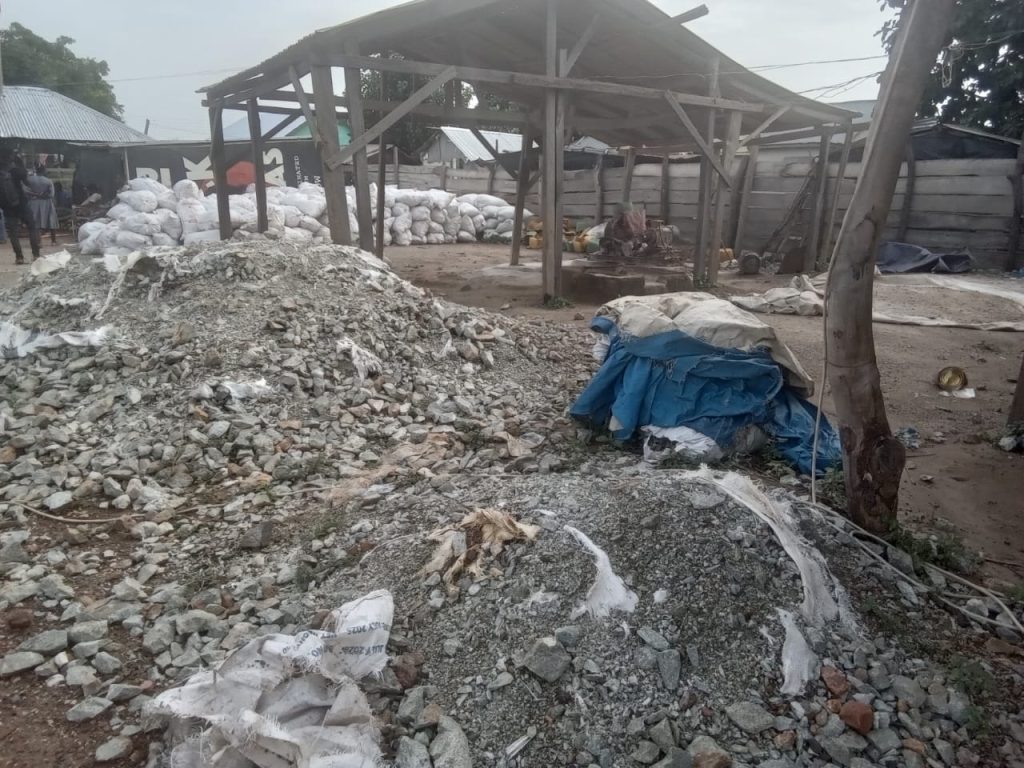By Rosemary Wayo
Dakrupe (S/R), Aug 30, GNA – Small scale miners in the Bole District have appealed to the authorities to enroll the district onto the Community Mining Scheme to regularise their operations in the 15 communities of the area.
The miners, together with traditional leaders, expressed the desire to be part of a structured programme that would offer them better access to legal mining opportunities and support.
They made the appeal at an engagement with the UK-Ghana Gold Programme (UKGGP) and delegates of the British High Commission at Bole.
The meeting brought together miners, security personnel, traditional leaders, Environmental Protection Agency (EPA) and other stakeholders in the mining value chain to discuss challenges confronting miners in the area.
It discussed ways to support the Bole District Security Council and the District Mining Committee to strengthen their regulations and monitoring to stop unregulated small-scale mining.
Prior to the meeting, delegates of the UKGGP and British High Commission visited an artisanal and small-scale mining site at Dakrupe in the Bole District to have first-hand information on mining challenges.
Mr Tahiru Mahama, Secretary of the Small-Scale Miners Association, Bole District, speaking during the engagement, said the district, which had many mining communities, needed to be allowed to mine legally.
“We have about 15 mining communities and we urge that each community can have a designated area they can mine legally,” he said.
“No one wants to be involved in illegal mining but when miners are left with no option, they do it to survive.”
He said replacing gold kacha machines with the use of mercury was a challenge to miners given the excessive cost of the machine.

Mr Mahama said a gold kacha machine was not enough to serve an entire community, so it was more appropriate to use the machine per miner.
He urged the government to subsidise the cost of the gold kacha machines to enable individual miners to purchase with flexible mode of payment.
The small-scale miners highlighted the challenges they faced, which included difficulties in obtaining licenses and inadequate resources.
Women at the Dakrupe mining site also enumerated challenges that hinged on inadequate support for the legal small-scale mining in the area.
The miners called for a decentralised system of acquiring license for local miners on the account that the Bole District had many mining communities.
Dr Steve Manteaw, Technical Adviser at the UKGGP, speaking after interacting with the miners, said the centralised system of acquiring license required miners to travel to Accra, often from far locations like Bole.
The process was both time-consuming and discouraging, which deterred many miners from pursuing formalisation of their activities.
The challenge was exacerbated by the fact that only one person, the Minister for Lands and Natural Resources, was responsible for signing all applications, he said.
Dr Manteaw explained that the centralised system created a bottleneck, resulting in a backlog of a signifcant percentage of licenses for renewal, leaving miners to operate without valid permits.
Decentralising the licensing process could lessen gaps therein and proposed a model similar to Tanzania’s, where licenses were processed at the district level with input from local stakeholders including traditional authorities, Minerals Commission, EPA, and local miners associations.
Under such systems, licenses approved locally would be forwarded to the central government for final review and filing.
Mr Chris Aston, Team Lead, UKGGP, underscored the significance of enrolling miners and traders in local community mining schemes, emphasising the benefits for those operating in the Bole District.
He said such schemes would prevent the need for miners to travel to Accra for licenses, a process he described as a difficult one.
He said the Precious Minerals Marketing Company bought gold from legalised traders, which helped to prevent smuggling from gold buyers from Burkina Faso, who were not licensed.
“About 2 billion US dollars is lost from gold smuggling because it is not going through legitimate means and the Ghanaian government loses out.”
Alhaji Abu Asiedu, the Patron of the Bole District Small Scale Miners Association, said mining was beneficial to the country when formalised, making miners and government benefit from its returns.
He expressed worry over the reluctance of the relevant authorities to legalise mining in the district, adding that only the Dakrupe community mined legally.
GNA